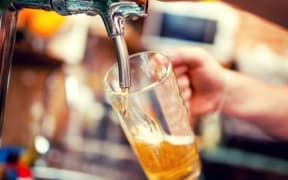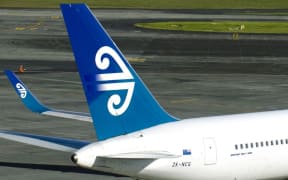There have been numerous announcements and developments around the country today, if you've missed all that went down, you can catch up what happened here.
As Covid-19 spreads around the world, it can be daunting keeping up with the information. For RNZ, our responsibility is to give you verified, up to the minute, trustworthy information to help you make decisions about your lives and your health. We'll also be asking questions of officials and decision makers about how they're responding to the virus. Our aim is to keep you informed.
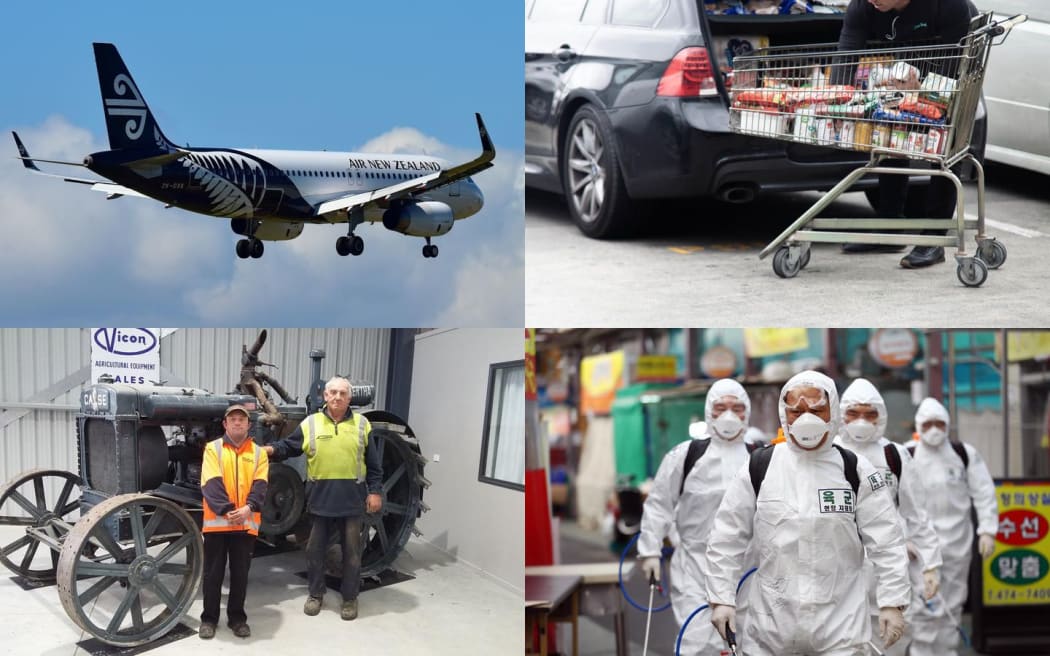
Photo: RNZ
Today, 76 new cases of Covid-19 were confirmed in New Zealand, bringing the total number of cases in the country to 589 - with 12 people in hospital, two of whom are in Intensive Care Units.
Sixty-three people have now recovered, and there have been no additional deaths after a West Coast woman died in hospital on Sunday. It's still not clear how the woman caught the virus, as it was initially thought her symptoms were influenza.
Community transmission increase expected, cluster of cases, and arrests made
Director-General of Health Ashley Bloomfield said of the 455 cases 57 percent had a direct link to overseas travel, 26 percent were close contacts with existing cases, 15 percent have both, and just 2 percent - or about 10 cases - were currently community transmission.
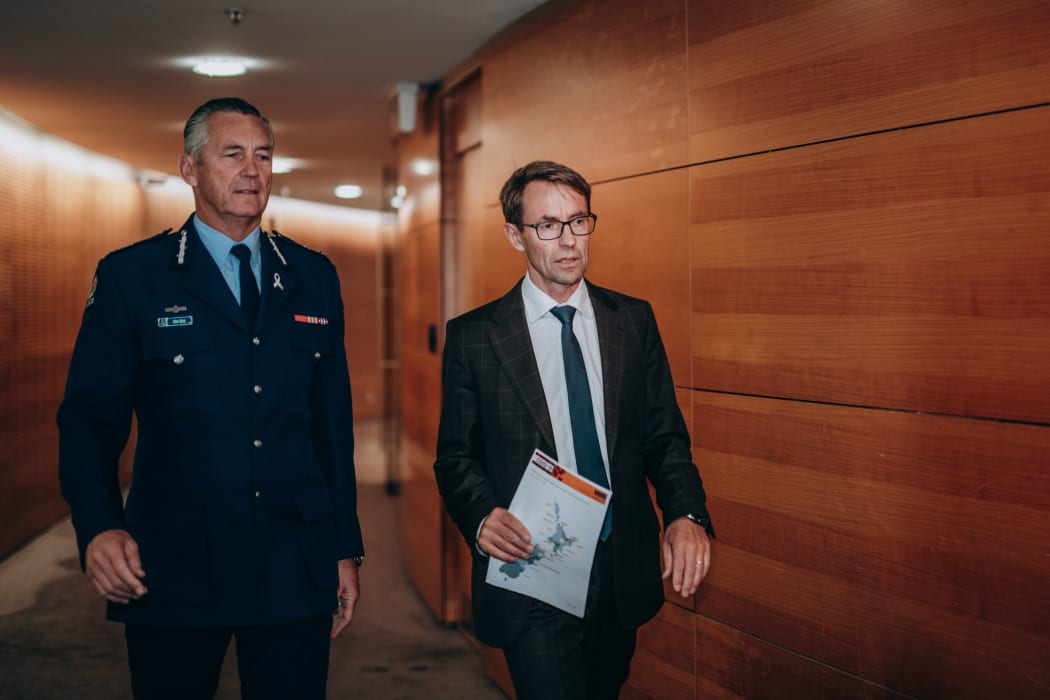
Dr Ashley Bloomfield and Police Commissioner Mike Bush. Photo: RNZ /Dom Thomas
In her media conference today, Prime Minister Jacinda Ardern said she was not ruling out keeping border restrictions in force until a vaccine for Covid-19 was developed.
However, Dr Bloomfield said he expected an increase of community transmission cases in coming weeks, "particularly because we are seeing those small number of clusters around the place."
So far Auckland's Marist College has the biggest cluster of infections, with 47 confirmed and probable cases of Covid-19, which includes teachers, students and adults within the community.
The entire school of about 750 students, as well as staff, is classed as close contacts and they have been asked to keep to strict isolation rules.
Another cluster has been identified by health officials today linked to a St Patrick's Day celebration at a local bar in Matamata.
Most of the people infected in the area - which now stands at 23 - had been to the event on 17 March at the Redoubt bar, or are directly linked to those who attended.
Anyone who went to the bar on the day and developed symptoms of Covid-19 should contact Healthline or their GP. All swabs taken from the town will undergo priority testing.
Police Commissioner Mike Bush also provided an update, saying two police staff had tested positive and were self-isolating, and as a result several hundred police officers around the country were now self-isolating too.
Twenty-eight Defence Force personnel that were based in Iraq arrived back in New Zealand last week, and are in isolation at the Royal New Zealand Air Force base in Auckland. The rest will be returning later this week.
Ardern said their return of the troops, whose withdrawal was scheduled to be by June this year, had not been sped up by the global Covid-19 pandemic.
She also thanked the thousands of health professionals who registered to return to work and support the health system in its Covid-19 response, some of whom had recently retired or changed careers.
In the Police Commissioner's update today, he also said three people had been arrested for repeat offences of breaching the lockdown rules, and one person was still in custody.
The website to report breaches of isolation rules to police crashed after launching yesterday, when it was inundated with the public providing information.
- If you have symptoms of the coronavirus, call the NZ Covid-19 Healthline on 0800 358 5453 (+64 9 358 5453 for international SIMs) or call your GP - don't show up at a medical centre
Read more about the Covid-19 coronavirus:
- See all RNZ Covid-19 news
- Government clarifies essential services during lockdown
- Covid-19 alert system: What you need to know
- Covid-19 symptoms: What they are and how they make you feel
- Touching your Face: Why do we do it and how to stop
- Scientific hand-washing advice to avoid infection
- The Coronavirus Podcast
Changes to funeral and tangihanga guidelines
The Ministry of Health this evening announced new guidelines for funerals and tangihanga, allowing a restricted number of family members within the same bubble of the deceased to visit them in the funeral home.
The old guidelines meant whānau who had lost loved ones had just three options: immediate burial, immediate cremation or refrigeration, and only one member of the whānau could visit the funeral home to facilitate arrangements.
Ministry of Health deputy director-general health Māori John Whaanga said the rule change was only likely to be in relation to those deaths which were not related to Covid-19.
"Funeral directors will make key decisions around how many whānau members within the bubble might be able to participate safely. Funeral homes are the only place we are looking at because it is a controlled environment.
"By that stage, tūpāpaku will be embalmed and have protective casing around it. Funeral directors have also looked at having clear latex so that you would be able to see the tūpāpaku."
The burial must be undertaken at a local cemetery, Whaanga said.
Wage subsidy, supermarket prices, and air freight
So far $3.7 billion had been spent through the wage subsidy scheme, benefiting more than 580,000 employees, Prime Minister Jacinda Ardern said.
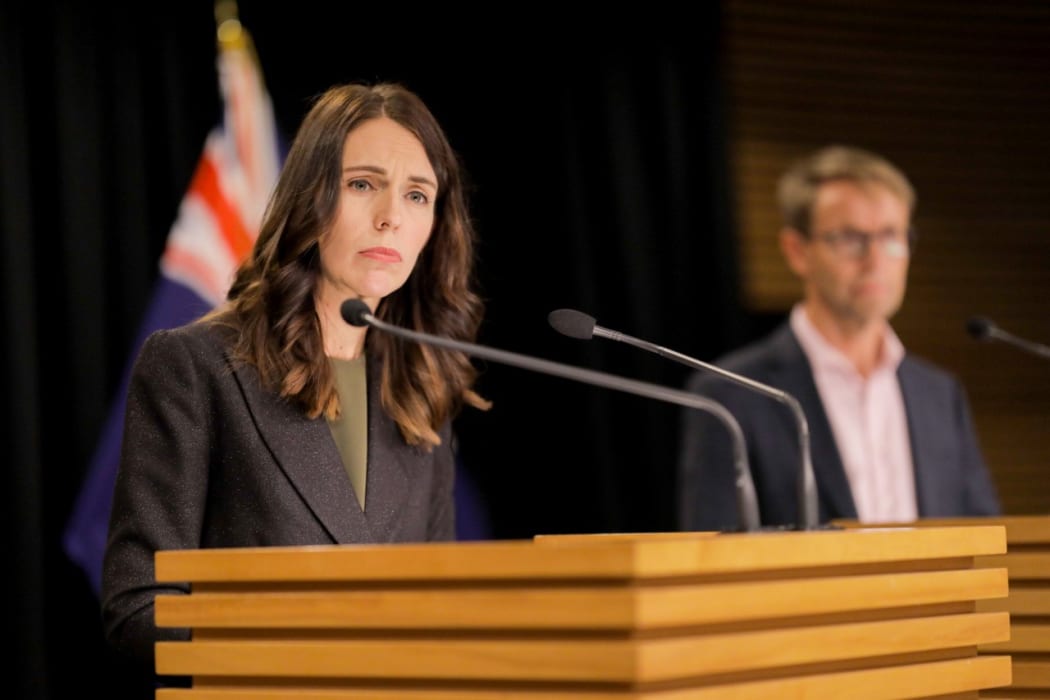
Prime Minister Jacinda Ardern. Photo: RNZ / Dom Thomas
It comes after some customers complained that prices of items like soap, meat and fresh veggies had increased sharply amid panic-buying last week.
Although, the supermarket chains firmly denied those accusations, saying that the difference in prices may be due to promotions.
Addressing the complaints, Ardern said that while no cases of price gouging had been found, action would be taken if that was found to be the case.
The government has set up an email - pricewatch@mbie.govt.nz - for people to report any cases of price gouging by essential businesses that are open during the lockdown.
Commerce and Consumer Affairs Minister Kris Faafoi told Checkpoint that supermarkets have "got to play the game."

Commerce and Consumer Affairs Minister Kris Faafoi. Photo: RNZ /Dom Thomas
"There's got to be some good faith here. If we see a pattern of prices heading north that can't be necessarily explained, because of supply chain issues or seasonal issues, then we'll be having a chat to them."
Faafoi said supermarkets bringing back specials was not a result of government pressure, but "we have been having some pretty blunt conversations."
There was also no commitment from the government to compensate independent grocers for stock losses, he said.
The Reserve Bank also announced it was ramping up support for businesses and banks by accepting corporate debt and other assets as security for loans to banks. The programme will run for up to 12 months but end sooner depending on demand.
The government has fast-tracked up to $1 million to help Air New Zealand move urgent freight in and out of the country - with the first flight to Shanghai leaving tonight.
The funding comes out of the already-announced $600 million aviation support package.
It will ensure the freight flights are financially viable, given Air New Zealand has lost nearly all its revenue from passenger services, and that essential trade - such as food and medical supplies - continues to flow freely during global pandemic.
Essential services review
Ministers also met today to discuss whether more services should be deemed to be essential and allowed to be open for business.
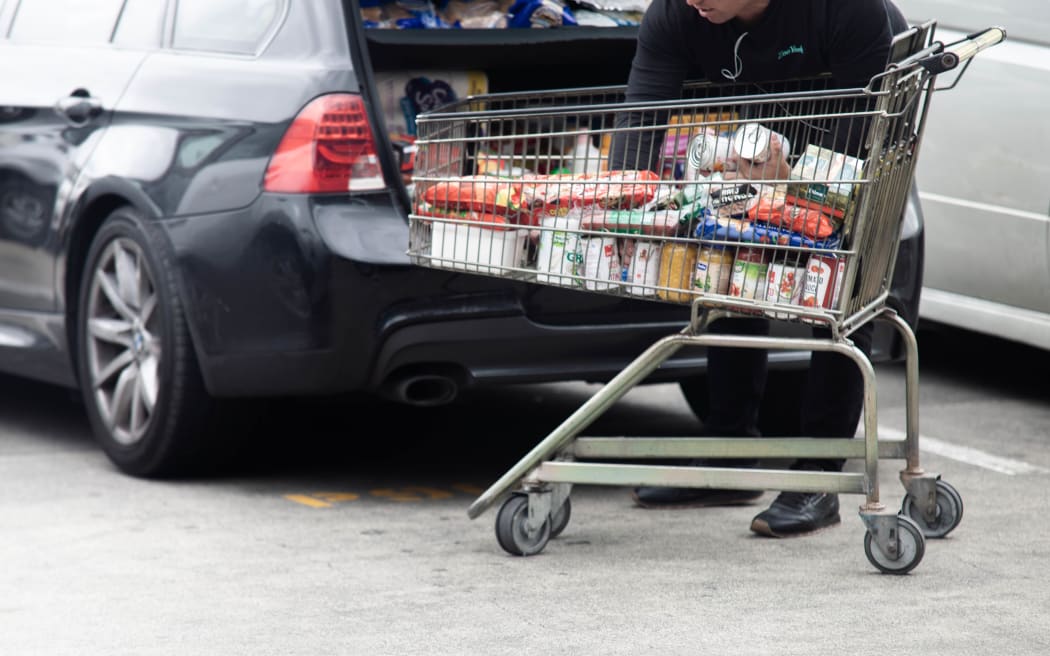
Queues at Mt Wellington supermarkets after it was announced the country is moving into alert level 3. Photo: RNZ / Cole Eastham-Farrelly
Halal butchers, difficulty getting grocery deliveries, and whether to allow trading on New Zealand's Easter holidays when shops are traditionally shut, are among issues that have arisen under the national level 4 lockdown to prevent the spread of coronavirus.
Concerns have arisen that regular supermarkets do not supply halal meat, and ministers are investigating whether they can begin to provide for those needs and maintain halal certification.
The government has decided to allow the sale of some essential goods, including household appliances, whiteware, blankets, fridges, heaters and computers.
The Ministry of Business, Innovation and Employment said stores selling these essential goods must do so using online orders, or phone orders, and keep premises shut.
Ardern said a decision on what would happen with Easter trading would be announced tomorrow.
Many shops, including supermarkets, are normally banned from opening and trading on Good Friday and Easter Sunday, but because of demand for essential services, and particularly supermarkets, the ministers are considering whether changes are needed.
However Ardern sid the Easter closures could actually help some shops keep up with demand.
"We are in an extraordinary situation, but I want a pragmatic response, if the supermarkets tell us 'we actually need that time to restock shelves that we haven't been able to catch up on', then that's in the best interest of New Zealanders as well.
"It's such a rare thing now, the visits to the supermarket, it's quite time consuming because people want to make sure there aren't too many people in the shop, so I'd rather make sure that when they go, the things they are looking for are there.
"I'm hoping to have a bit more certainty over that in the next 24 to 48 hours."
She said no matter what, dairies would be able to operate during that period.


